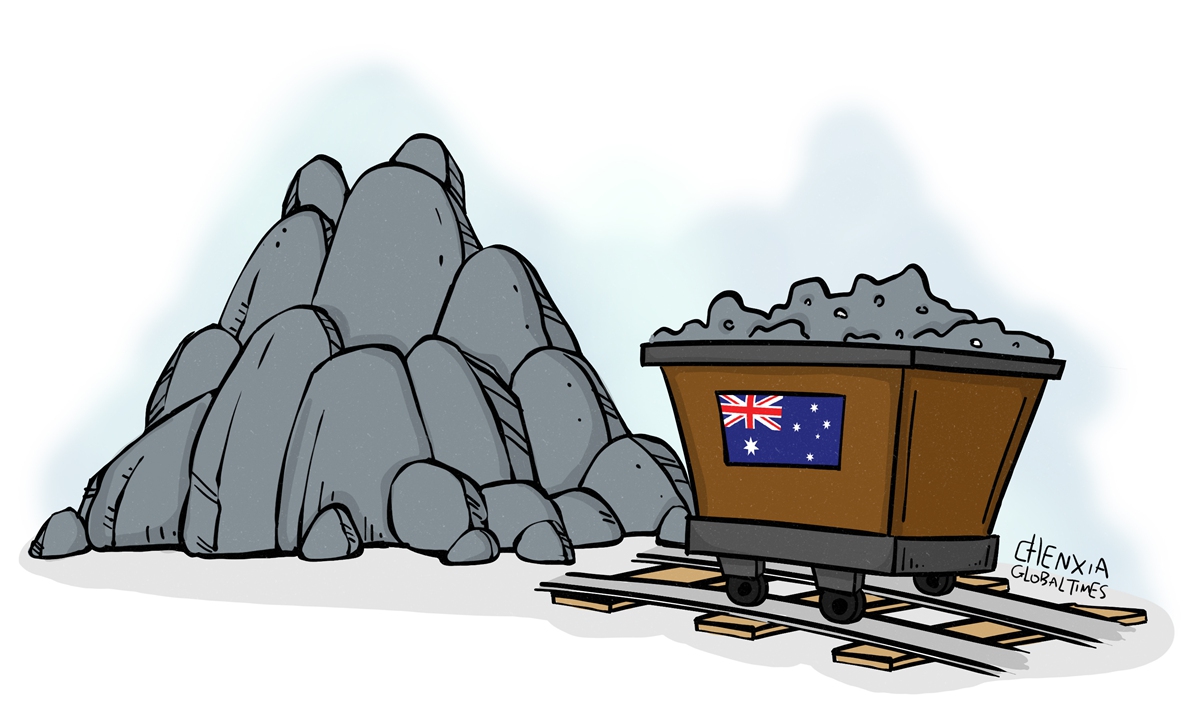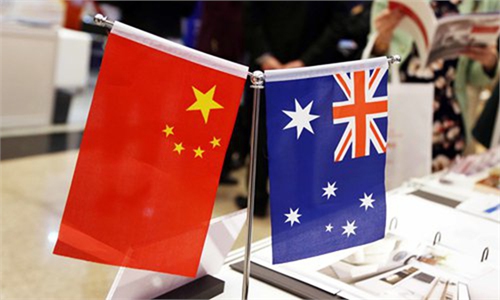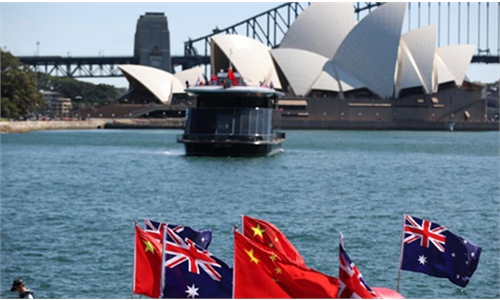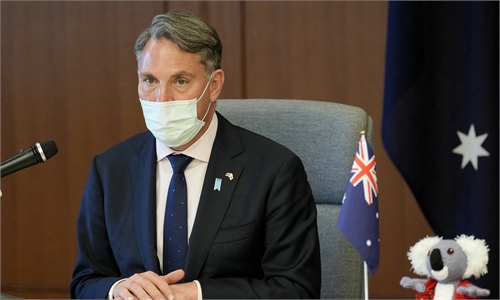
Illustration: Chen Xia/Global Times
Miners in Australia, the world's largest producer of lithium, are trying to move up in the global supply chain for electric-vehicle battery materials through partnerships with big US and Chinese processing companies, Nikkei Asia reported on Tuesday.Although Australia is the world's largest producer of lithium, the processing of minerals in the country was long considered unprofitable because of high electricity and labor costs. But with the rise of the electric vehicle industry, the business environment has changed. Built near mines and equipped with automation, "these new Australian plants are running at quite a competitive cost position," Nikkei Asia reported, citing analyst.
Mining has long been a cornerstone of the Australian economy. The industry is strongly export-oriented, with minimal processing onshore. Over the past few decades, there have been voices calling for the industry to discover and expand new mining technologies and encourage a greater share of the raw materials to be processed in Australia and bring more local jobs; however, the slow progress is disappointing.
Currently, as automakers race to a clean-energy future, investors pour billions into the industry and make technological progress in the process. While it remains to be seen whether Australian plants have become cost competitive as the Nikkei Asia report claims, it is clear that miners in Australia wants to seize the opportunity to move up the supply chain and make more profit through "partnerships with big US and Chinese processing companies."
The increasing desire among Australian miners to attract US and Chinese processing companies to invest in Australia's mining industry is a positive sign for all parties. Particularly, as the Australian government has, in lock step with the US, stepped up scrutiny of Chinese firms and even cracked down on certain Chinese businesses, such calls from Australian miners for cooperation also speak volume.
According to the US International Trade Administration, Australia is the fourth largest mining country in the world after China, the US and Russia. China is one of the biggest producers of many critical minerals that are essential to those used in the manufacturing of elements ranging from electric vehicle batteries to solar panel. Undoubtedly, Chinese enterprises have rich experience in mining and processing industries and some of them have sufficient fund for overseas investment.
Currently, China is one of the largest exporters of mining equipment to Australia, and the two countries have even broader space for cooperation in many fields such as material processing. Processing minerals domestically can give Australian manufacturers a competitive advantage in manufacturing sought-after goods such as components for new-energy vehicles and therefore provide a new impetus for Australia's economic growth.
Australia still has a long way to go to develop its own material processing industry and international cooperation and foreign investment will help the country accelerate the development. Foreign investment can help Australia reach its economic potential by providing capital to finance related industries.
However, for such win-win cooperation to materialize, it is essential for the Australian government to create a favorable environment for foreign investment and avoid politicizing economic issues.
The Australian business community's desire to attract Chinese investment should be heard by politicians in Canberra. If the Australian government can offer a positive atmosphere for Chinese investors, there is no doubt that mutually beneficial cooperation will help inject new dynamism and make new contribution to Australia's economic growth.
This year marks the 50th anniversary of the establishment of diplomatic relations between China and Australia. Chinese State Councilor and Foreign Minister Wang Yi in September held a meeting with Australian Foreign Minister Penny Wong, during which both sides reaffirmed the positioning of a comprehensive strategic partnership between the two countries, and shared the view that the two countries should follow the spirit of mutual respect to steer bilateral relations back on the right track as early as possible.
Over the past 50 years of diplomatic relations, mutual-benefit and win-win have always been the essence of China-Australia relations. Now, how to continue this mutually beneficial cooperation, meet the expectations of the business community, will test the political wisdom of Australian leaders.
The author is a reporter with the Global Times. bizopinion@globaltimes.com.cn



